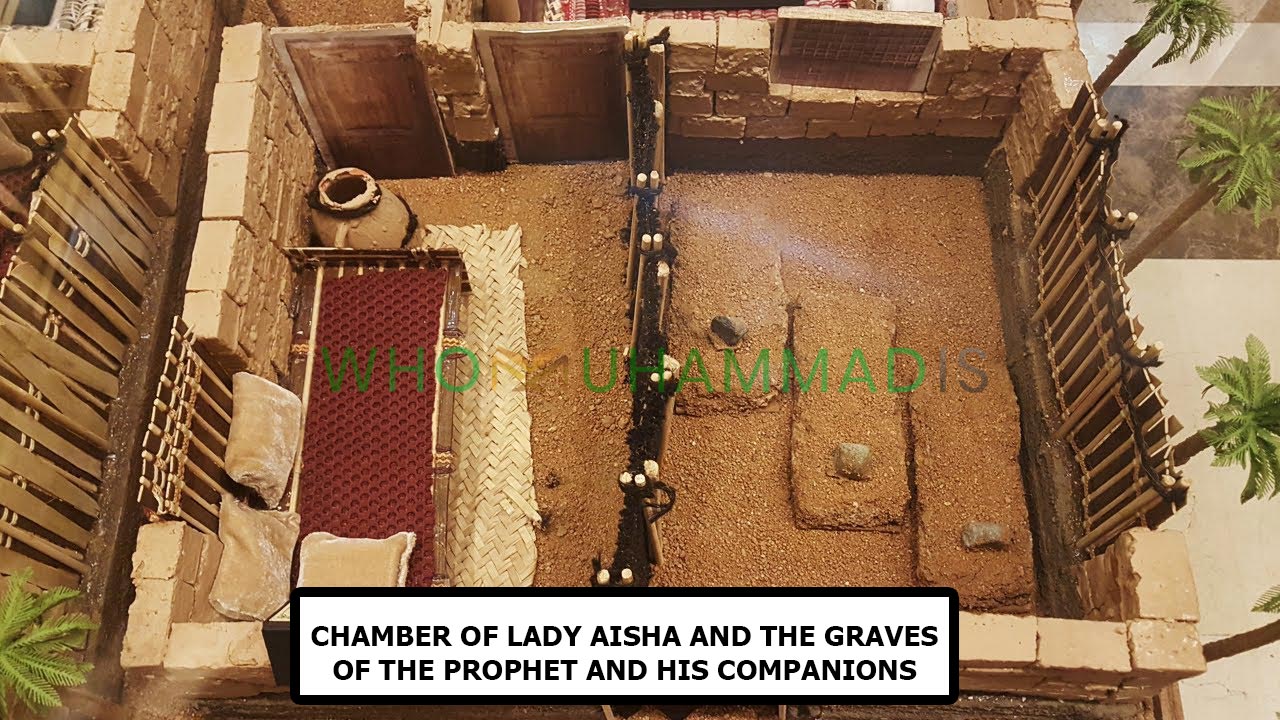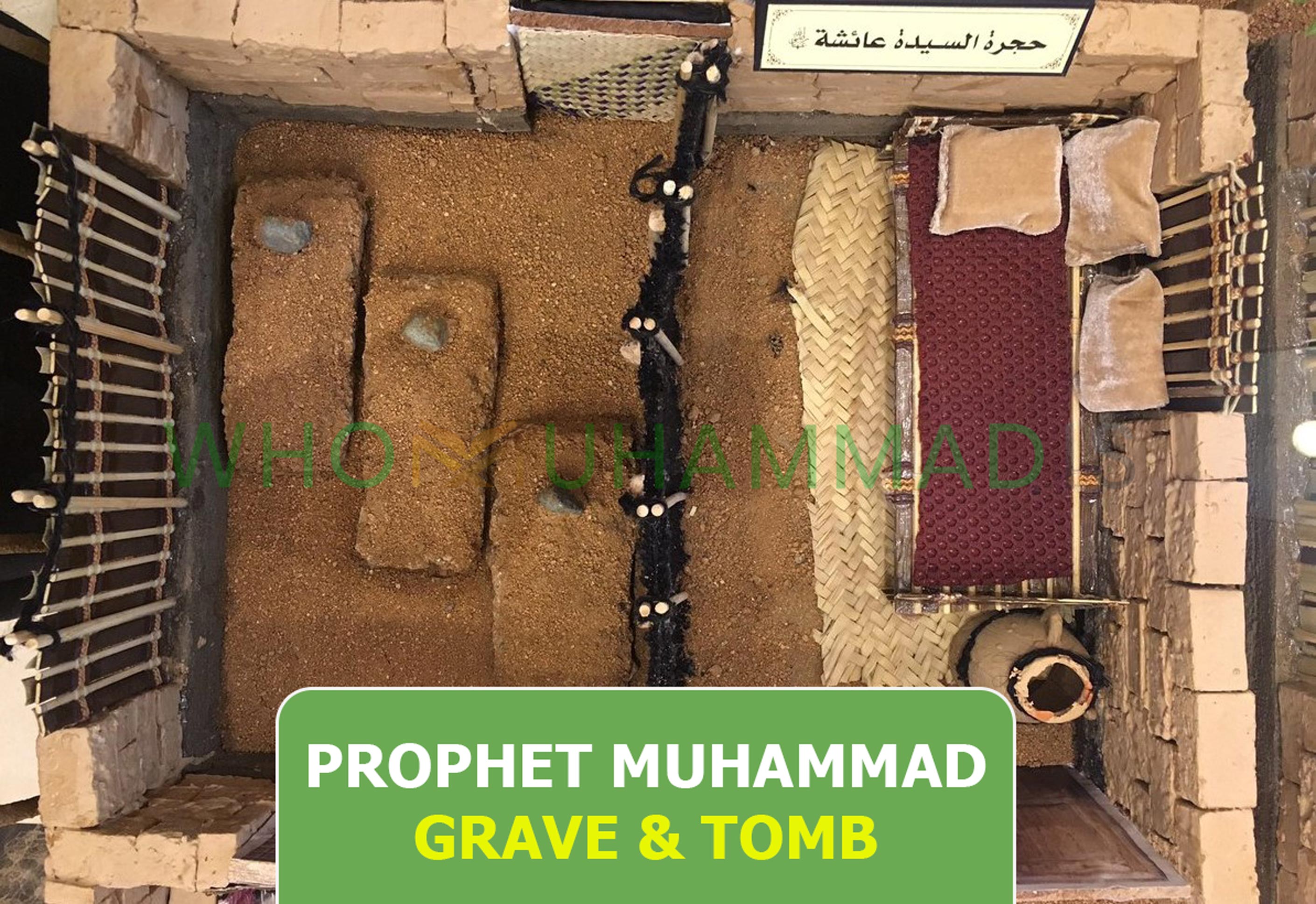It's a question that touches the very core of human experience: the sorrow of a parent saying goodbye to a child. This profound pain, a universal feeling, actually resonates deeply within the stories of various spiritual leaders throughout history. When people ask, "Which Prophet buried his daughter?", they're often looking for more than just a name. They are, in a way, seeking to understand the personal trials and emotional strength of those chosen to guide humanity.
For many, thinking about a prophet brings to mind powerful messages, divine revelations, and incredible miracles. Yet, behind these grand roles, these individuals were, you know, also people with feelings, families, and very real struggles. Their lives, very much like our own, included moments of joy and, sadly, times of immense grief. So, exploring this particular question helps us see the human side of prophethood, a side that often gets overlooked.
This article will shed some light on this specific query, giving you a clear answer while also exploring the meaning of a prophet's role, as described in my text. We'll look at the life of the prophet most directly associated with this profound personal loss and, honestly, consider the impact it had on him and his community. It's about connecting with history and faith on a deeply human level, you see.
Table of Contents
- The Role of a Prophet: A Divine Connection
- Prophet Muhammad: A Father Who Faced Loss
- The Pain of Loss: A Human Experience
- Other Prophets and Their Children
- Frequently Asked Questions
The Role of a Prophet: A Divine Connection
Before we pinpoint the specific prophet, it's quite helpful to really grasp what a prophet actually is. In religion, a prophet or prophetess is an individual who is regarded as being in contact with a divine being. They are, you know, said to speak on behalf of that being, serving as an intermediary. The meaning of prophet is one who utters divinely inspired revelations, as we often hear.
Simply put, a prophet is someone chosen by God to speak for God. Their job, whatever the time period or tidings, was to accurately impart his message. In a general sense, a prophet is a person who speaks God's truth to others. The English word prophet comes from the Greek word prophetes, which can mean "one who speaks forth." Thus, a prophet was a spokesman for God. He spoke in God's name and by his authority, very much like in Exodus 7:1.
A prophet is the mouth by which God speaks to men, as Jeremiah 1:9 tells us. They are a person who is believed to have a special power that allows them to say what a God wishes to convey. In its narrower sense, the term prophet (Greek prophētēs, "forthteller") refers to an inspired person who believes that he has been sent by his God with a message to tell. He is, in that sense, a messenger. A prophet in the biblical context is an individual chosen by God to deliver his messages and guidance to the people. Prophets play a crucial role throughout the Bible, serving as God's voice, you know. They really are central to many faiths.
Prophet Muhammad: A Father Who Faced Loss
When we consider the question, "Which Prophet buried his daughter?", the figure that comes to mind most prominently, and with extensive historical documentation, is Prophet Muhammad (peace be upon him). He, you see, experienced the profound sorrow of outliving nearly all of his children, including several daughters. This aspect of his life really shows his deep humanity and resilience in the face of immense personal grief, even while carrying the heavy mantle of prophethood.
Personal Details and Family Life of Prophet Muhammad
Prophet Muhammad was born in Mecca, in what is now Saudi Arabia, around the year 570 CE. His life story is, you know, widely studied and respected across the globe. He came from a noble lineage, though he faced hardships from a very early age, becoming an orphan quite young. His early life was marked by honesty and trustworthiness, earning him the title "Al-Amin," meaning "the trustworthy one," which is something quite special.
He married Khadijah, a respected businesswoman, when he was 25, and she was, like, his first and only wife for many years. Their marriage was a very loving and supportive partnership. Together, they had several children, though sadly, not all of them lived to adulthood. This family life, honestly, provides a very important backdrop to understanding his personal trials, especially the loss of his daughters. It shows he was, at his core, a family man.
| Detail | Information |
|---|---|
| Full Name | Muhammad ibn Abdullah ibn Abd al-Muttalib ibn Hashim |
| Birthplace | Mecca, Hejaz (present-day Saudi Arabia) |
| Birth Year | Approximately 570 CE |
| Death Year | 632 CE |
| Primary Role | Prophet and Founder of Islam |
| First Wife | Khadijah bint Khuwaylid |
| Children (with Khadijah) | Qasim, Zaynab, Ruqayyah, Umm Kulthum, Fatima, Abdullah |
| Children (with Maria al-Qibtiyya) | Ibrahim |
The Daughters of Prophet Muhammad
Prophet Muhammad had four daughters who reached adulthood with his first wife, Khadijah. Their names were Zaynab, Ruqayyah, Umm Kulthum, and Fatima. Each of them had their own life stories, their own challenges, and, sadly, their own passing. It's a very poignant part of his life story, honestly, how he had to endure such personal grief so many times.
His eldest daughter, Zaynab, was married and had children. She passed away in the eighth year after the migration to Medina. This was, you know, a very difficult time for him. Then there was Ruqayyah, who married Uthman ibn Affan, a prominent companion. She passed away during the Battle of Badr, which was a very trying period for the early Muslim community. Her passing meant that Prophet Muhammad had to bury her, a truly heart-wrenching moment for any parent, really.
Umm Kulthum, another daughter, also married Uthman after Ruqayyah's passing. She too, sadly, passed away during her father's lifetime. This meant more grief, more burials for the Prophet, which is, you know, an almost unimaginable burden. The repeated experience of burying his own children, one after another, must have been incredibly tough on him, like any parent would feel.
Finally, there was Fatima, who is perhaps the most well-known of his daughters. She was married to Ali ibn Abi Talib, another very important figure in Islam. Fatima was the only one of his children who outlived him, but only by a few months. She passed away shortly after her father, so she also experienced profound grief. While he did not bury her, her passing so soon after his own death adds another layer of sorrow to the family's story. It's a very sad sequence of events, in a way.
The Pain of Loss: A Human Experience
The loss of a child, as any parent knows, is a pain that runs incredibly deep. For Prophet Muhammad, who was, you know, a human being with emotions and attachments, these losses were undoubtedly agonizing. His reactions to the deaths of his children are well-documented in historical accounts and religious texts. He wept, he grieved, and he showed the very real human sorrow that comes with such profound bereavement. This truly highlights his humanity, as a matter of fact.
When his infant son, Ibrahim, passed away, the Prophet's eyes were filled with tears. When asked about it, he said, "The eye weeps and the heart grieves, and we do not say except what pleases our Lord. Indeed, Ibrahim, we are grieved by your departure." This shows, very clearly, that even a prophet, a person chosen by God, experiences grief just like anyone else. It's a powerful reminder of his connection to the human condition, you see.
His patience and endurance through these trials serve as a profound example for believers. Despite the personal sorrow, he continued to fulfill his prophetic duties, conveying divine messages and guiding his community. This ability to carry such a heavy personal burden while also carrying the immense responsibility of his mission is, honestly, a testament to his strength and faith. It's quite inspiring, really, to consider.
The stories of his daughters' lives and their passing are, in some respects, woven into the fabric of Islamic history and tradition. They are remembered for their piety, their strength, and their roles in the early Muslim community. Their struggles and their father's grief over them remind us that even the most elevated individuals face the common sorrows of life, which is a very humbling thought. You can Learn more about the history of early Islam on our site, and link to this page for more insights into the lives of the Prophet's companions.
Other Prophets and Their Children
While Prophet Muhammad is the clearest answer to the specific question of "Which Prophet buried his daughter?", it's worth noting that other prophets in various traditions also faced the sorrow of losing children. Prophet Job (Ayyub in Islamic tradition), for example, is well-known for his immense patience through suffering, which included the loss of all his children in a sudden disaster. He did not necessarily bury them individually, but he certainly grieved their collective loss, you know.
The stories of prophets are, in a way, filled with trials and tribulations. These personal hardships, including the loss of family members, serve to highlight their unwavering faith and their reliance on a higher power even in the darkest of times. It shows that their path was not always easy, or free from pain. They were, basically, put through the wringer, just like many people are.
These narratives, honestly, offer a very important lesson about resilience, patience, and the human spirit's capacity to endure. They show us that even those closest to the divine experienced deep sorrow, making their messages of hope and perseverance all the more powerful. It's a very universal message, really, about coping with life's hardest moments. For more historical context on these figures, you might find information on the role of prophets in various religions quite helpful.
Frequently Asked Questions
How many daughters did Prophet Muhammad have?
Prophet Muhammad had four daughters who reached adulthood with his first wife, Khadijah. Their names were Zaynab, Ruqayyah, Umm Kulthum, and Fatima. So, you know, he had quite a few, all of whom he loved very much.
Did any other prophets lose children?
Yes, other prophets also experienced the loss of children. Prophet Job, for instance, famously lost all of his children in a great calamity, as a test of his faith. There are, you know, other instances of prophets facing personal losses, which really highlights the human aspect of their lives, too it's almost.
What is the role of a prophet?
A prophet is an individual chosen by a divine being to communicate messages and guidance to humanity. They serve as an intermediary, speaking on behalf of God. Their job is to accurately impart God's truth to others, acting as a spokesman, as a matter of fact. They really are the voice by which God speaks to people, you know.
Related Resources:



Detail Author:
- Name : Dr. Elbert Murazik
- Username : brent13
- Email : von.jerad@konopelski.com
- Birthdate : 1988-05-27
- Address : 59226 Kendra Flats Suite 351 Alaynaton, VA 69166
- Phone : 972.452.4100
- Company : Reynolds, Zboncak and Murray
- Job : Podiatrist
- Bio : Nemo odit et velit adipisci. Ad animi ut autem dignissimos. Qui voluptate qui maiores veniam autem est. Esse tenetur est distinctio dolor eum.
Socials
facebook:
- url : https://facebook.com/sadyeheidenreich
- username : sadyeheidenreich
- bio : Nobis deserunt magni inventore perferendis consequatur.
- followers : 6511
- following : 2533
twitter:
- url : https://twitter.com/sadye_xx
- username : sadye_xx
- bio : Et nostrum facere ut occaecati autem. Tempora aut in inventore ut. Expedita tempora error necessitatibus rerum.
- followers : 5729
- following : 1534